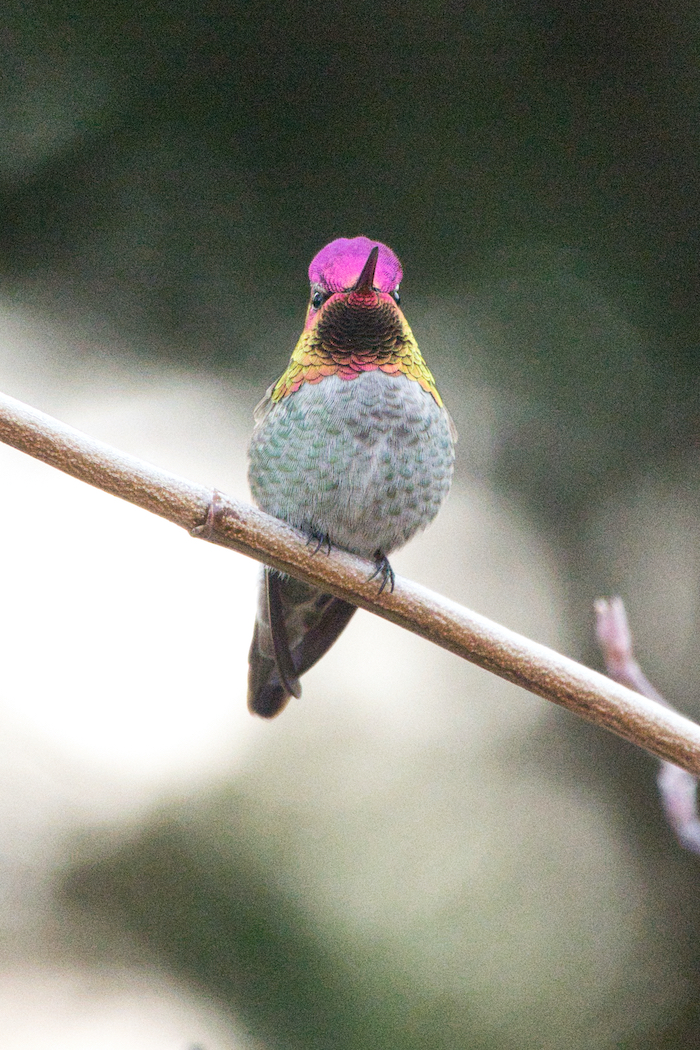
I was mixing gallons of sugar water with Anna’s Hummingbirds sucking it up as fast as I could make it just a few weeks ago. Where did they all go?
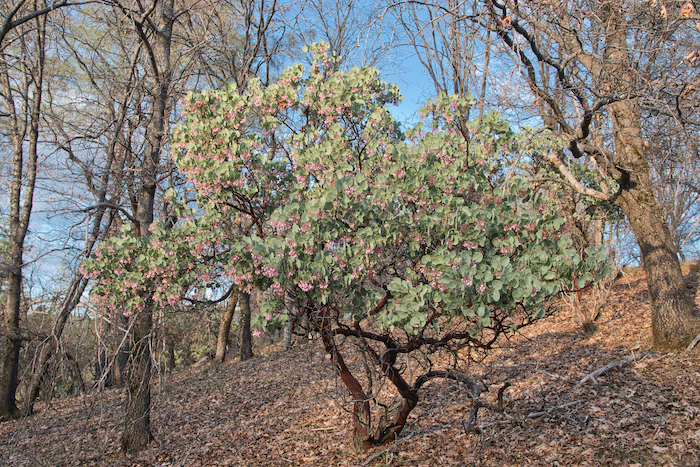
They went back to nature!
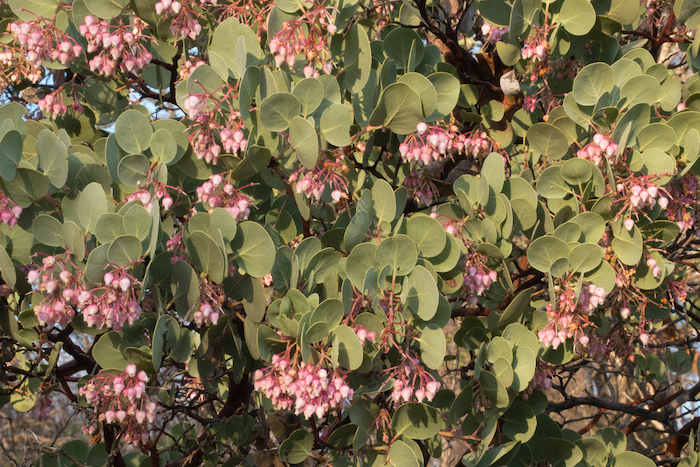
The local Manzanitas are blooming this time of year and, of course, the hummers prefer the real thing to sugar water.
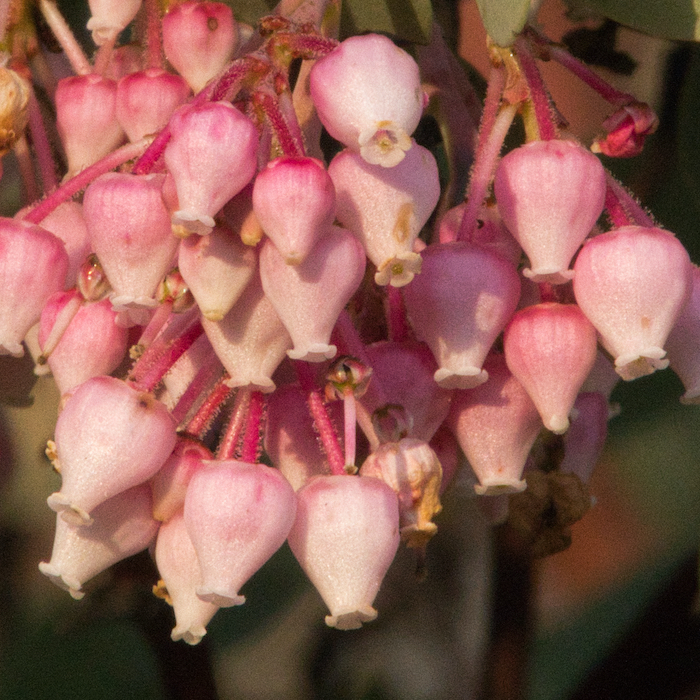
During the spring and summer months, there are many native plants offering food for hungry hummers. Here are just a few.
California Thistle (Cirsium occidentale)
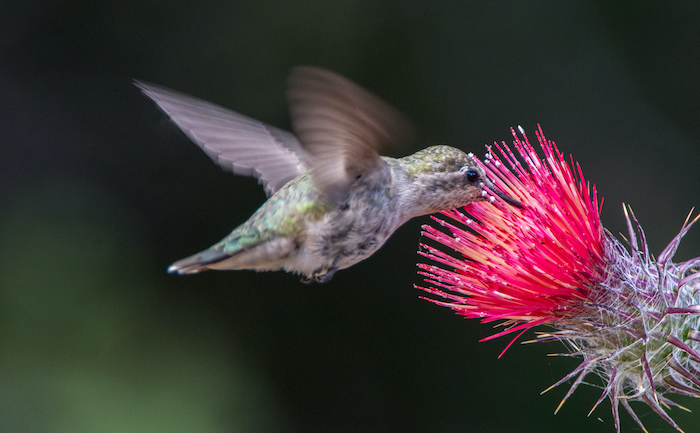
Red Yucca (Hesperaloe parviflora)
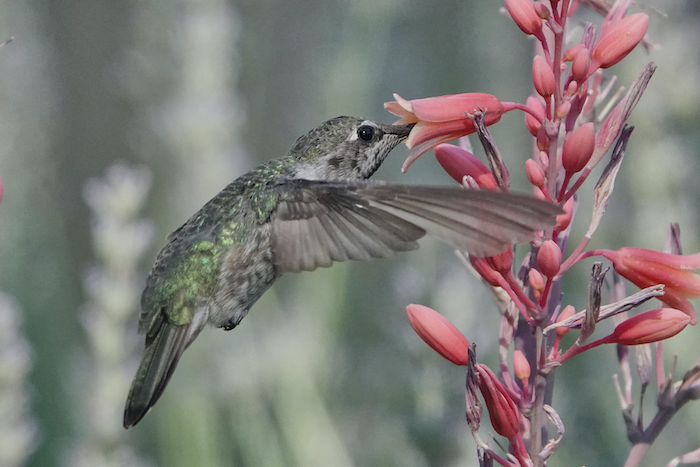
Autumn Sage (Salvia greggii)
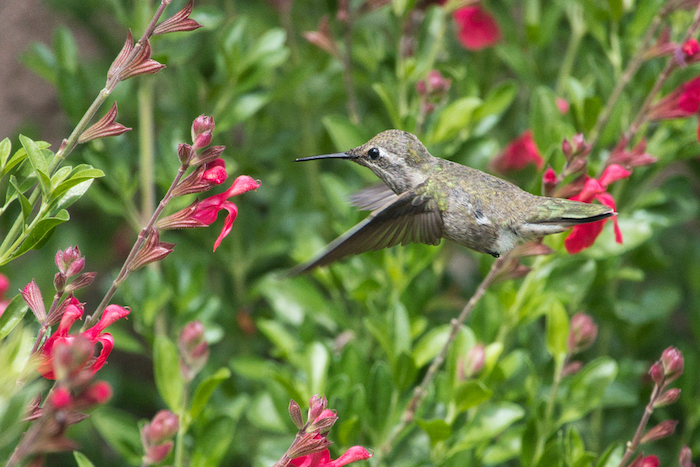
Hummingbird Sage (Salvia spathacea)
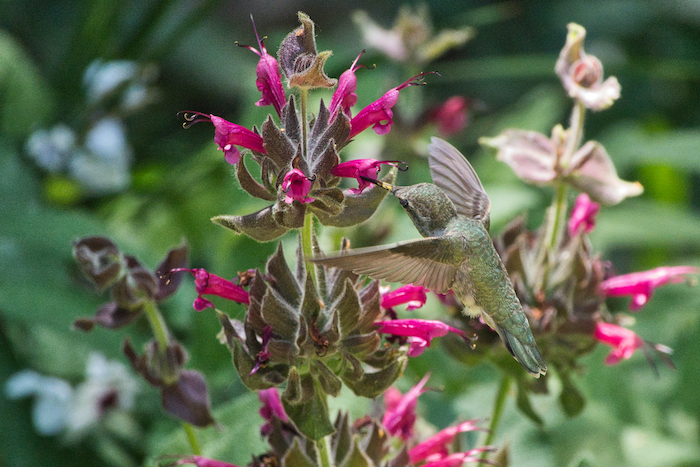
and my favorite, Woolly Blue Curls (Trichostema lanatum)
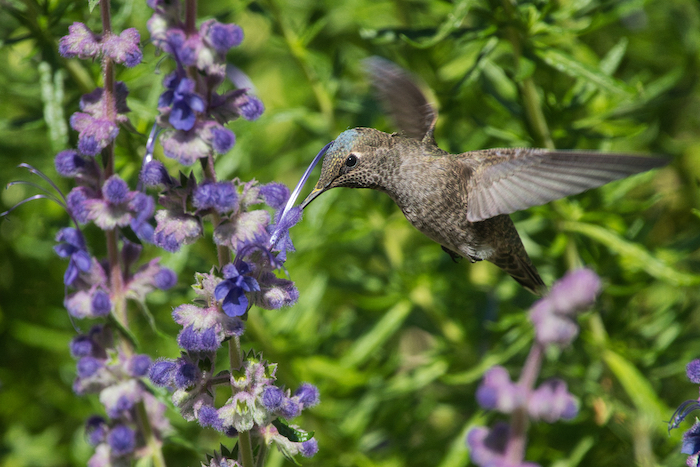
You may have noticed a few other behaviors regarding the Anna’s Hummingbirds. In April, I had several instances of females landing in my graveled driveway and apparently consuming small particles of sand or other minerals from the gravel. According to Cornell’s “Birds of the World,” they are probably acquiring minerals for egg laying.
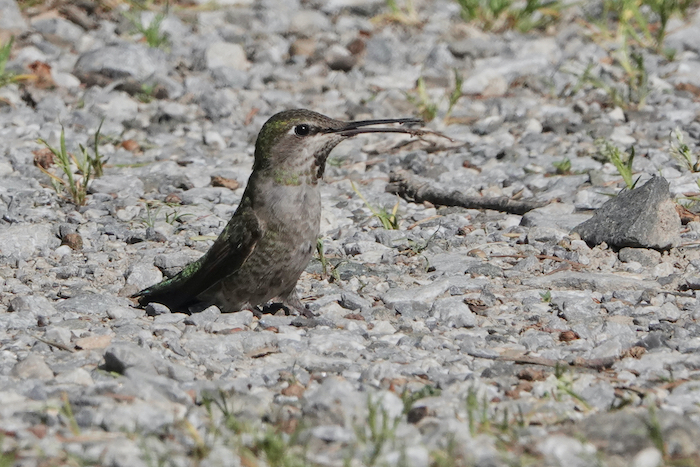
Getting back to the present, if you are lucky, you might find female Anna’s Hummingbirds gathering nesting material now, maybe in your yard or while out on a bird walk.
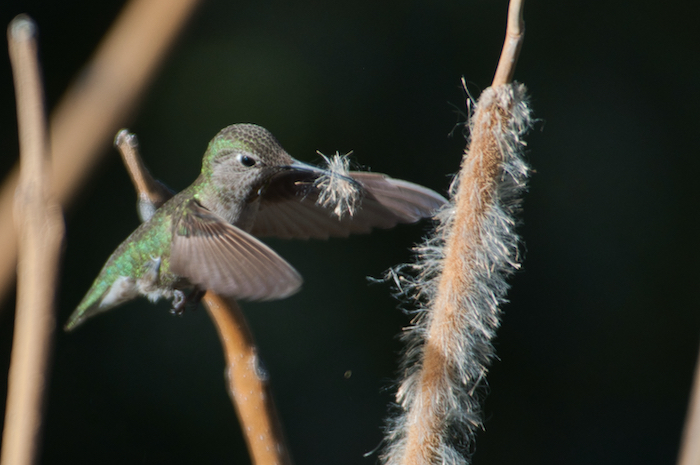
You can also provide natural cotton nesting material for them yourself, available at several outlets.
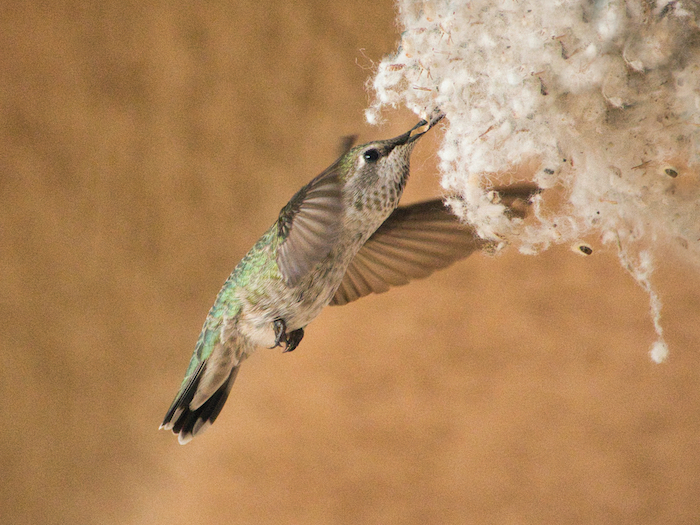
Again from Cornell Lab on the nest building. The inner cup is lined loosely with downy material (plant, feathers, hair). The walls are made of downy material including cattail (Typha), willow, underside of sycamore leaves, thistle, eucalyptus flowers, velvet groundsel (Senecio petasites), and small feathers. Binding materials are mostly spider webs and insect cocoon fibers, but also fibrous plant material and rodent hairs. Usually ornamented on the outside with bits of lichens, mosses, and dead leaves; occasionally bark, algae (Protococcus) or other plant materials, and paint chips. Nest materials are often stolen from another hummingbird’s nest. This is what the completed nest looks like, found at Turtle Bay Arboretum
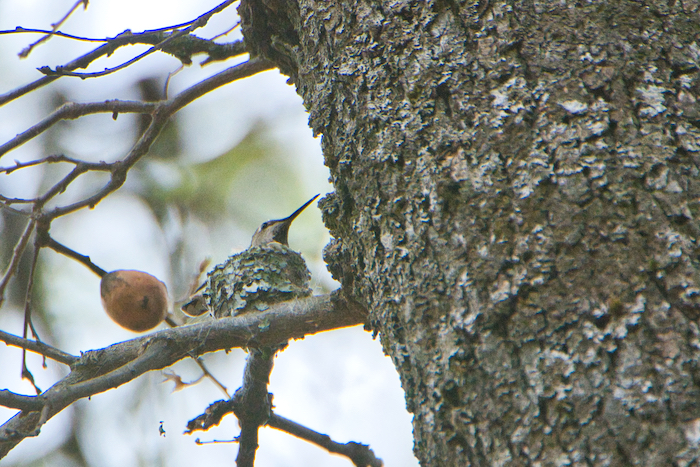
Obviously, if female hummers are gathering nesting material, it’s breeding time! Just last Saturday, on our outing to Lema Ranch, we observed the male’s incredible mating flight! This video is incredible! Isn’t nature amazing?
